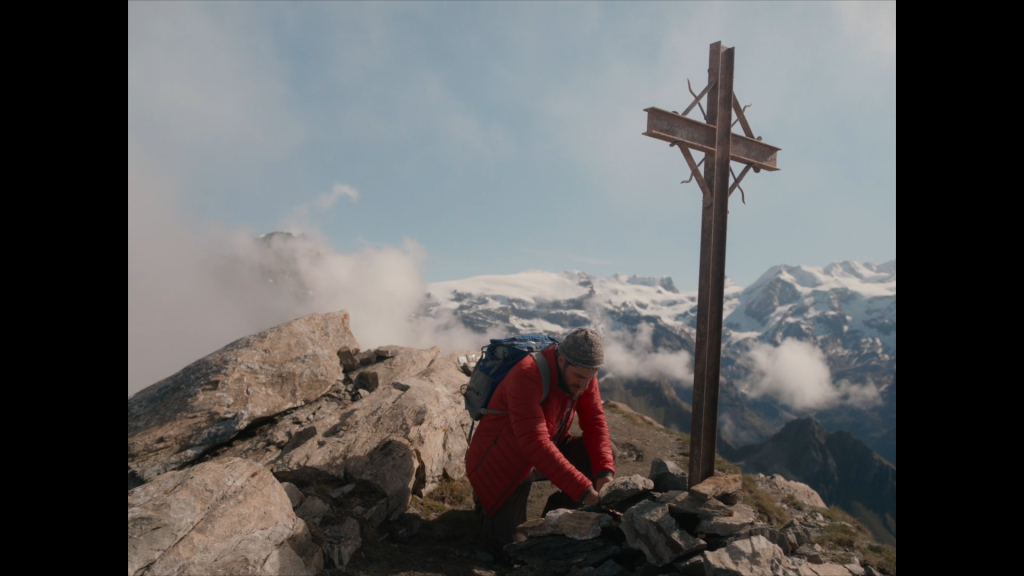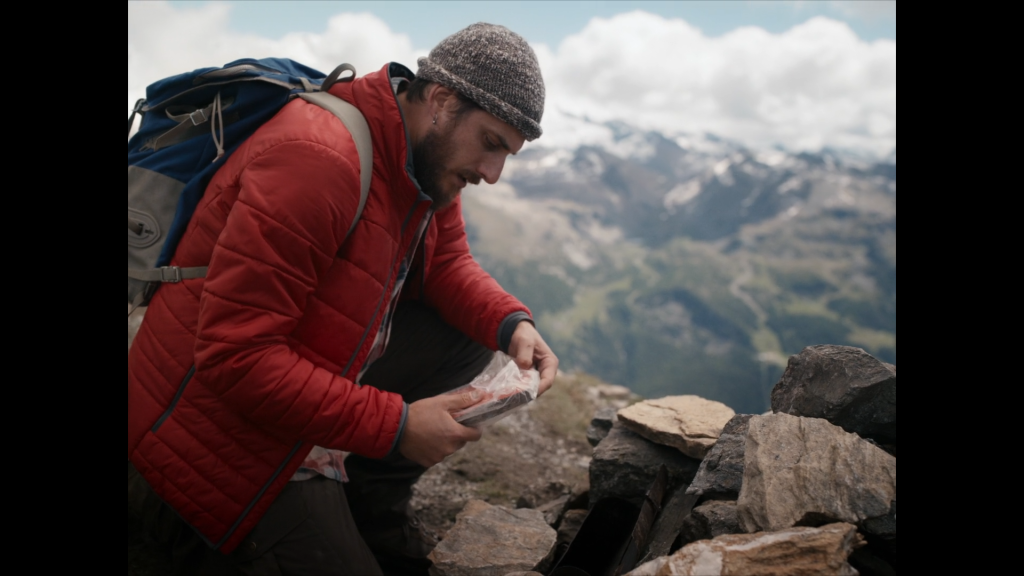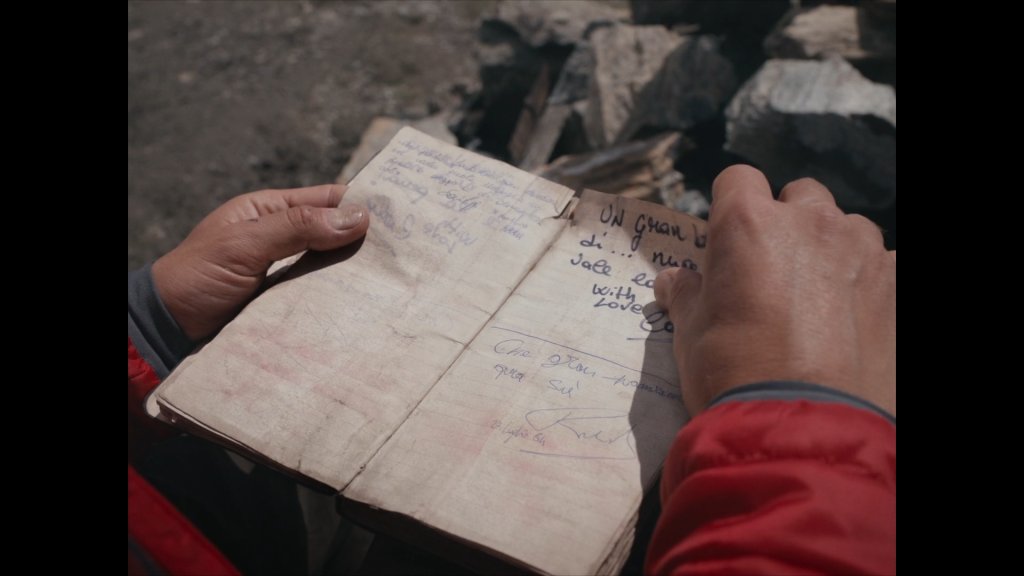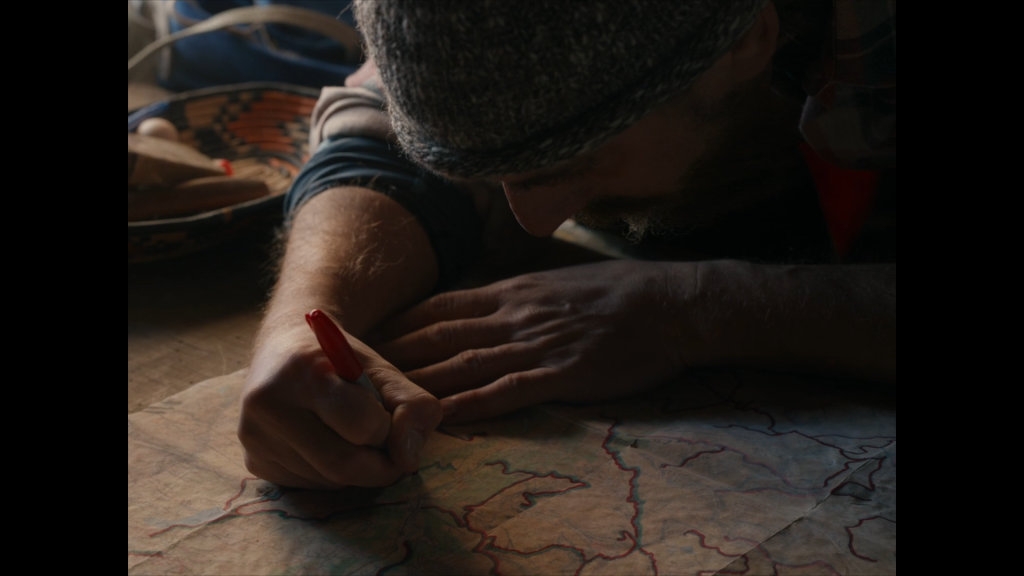Last January I described eight reasons I read film criticism. I thought about this post the other day after I checked Letterboxd (which I am now finally using, obviously) to see if anyone I follow had logged The Seen and Unseen and was delighted to find a review by Michael Sincinski. But why did that make me so happy? And which of my categories did this fit into? The closest fit would seem to be #2 “to check my own impressions of a film I just watched against that of the critical community” because of my timing, but I wasn’t motivated by fear of missing something. I definitely do enjoy Sicinski’s writing, but #7 “for pleasure” didn’t seem quite right either. All of a sudden the movie The Eight Mountains popped into my head. It’s about climbing mountains in the Italian Alps, among other things, and documents a ritual whereby climbers leave messages for those who will follow in notebooks buried at the summit of each peak before beginning their descent:
In the film this facilitates intergenerational communication between the man pictured in the screengrabs above, Luca Marinelli’s Pietro Guasti, and his late father Giovanni (Filippo Timi), who he had ceased speaking to years before he died, as do the maps that the latter used to record where he had gone:
Movies, like food, are for me very consciously a substitute for travel. I can’t afford to pop off to Turin on a whim, but I can watch a movie shot there or pick up a bottle of Barolo pretty much any time I like and learn something about the region that way. I also think of cinema as a terrain to explore in its own right. Film criticism is like the lines on Giovanni’s map: it says, “this place is worth going to!” It’s also like the messages in the notebooks he and Pietro find on their climbs: “I passed this way, too, and here is what I saw.” Which is to say that that engaging with it doesn’t always have to have a deliberate purpose–sometimes you follow a trail just to see where it leads and then you read whatever you find at the end of the road because it’s there.



